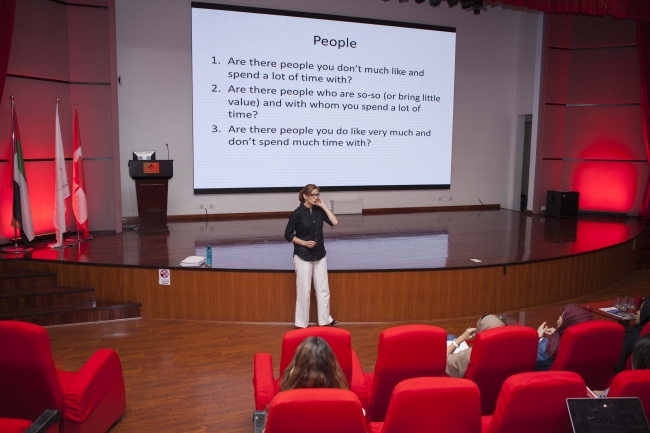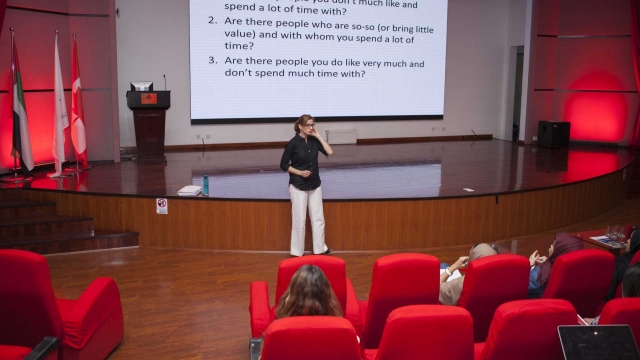October 16 2017 - Red Theater, CUD: Students and Faculty attended a seminar conducted by Dr. Louise Lambert, Associate Professor in which she explored strategies on how to invest in your future happiness.
Dr. Lambert holds a PhD in Psychology and has written several books and papers on the subject of well-being. The talk was delivered as part of the wellness month currently being run at the University.
During her talk Dr. Louise explored the concept of automaticity, “going with the flow” where we do not put enough thought into where and with whom we spend our time .Some of us associate with people who we maybe don’t like but believe can bring us benefit. Yet, this investment of time, affection, care, interest, support and our very selves should be thought of as money and many people are surprised when the time comes to draw on that investment to find it brought no returns at all.
In other cases, because we are on autopilot, we do not spend enough time with people we do like for no other reason than they are not part of our Thursday night or weekend habits. In short, what we do and with whom is important to scrutinize. To maximize our happiness, we should instead be more critical about where our investments go; that is, what and who brings us joy and this may entail making difficult and decisions. An example might be saying no to overspending and overeating with a group of habitual people in favor of playing tennis with a group of strangers where one feels a sense of accomplishment and can go to bed early.
She suggested the pressure to be happy often led to individuals making poor choices and going with the flow and paradoxically, becoming unhappy.
She encouraged people to look on their happiness much like a stock broker would. If we receive no return then we must decide to invest elsewhere, even if there are no apparent losses.
Dr Louise suggested an effective strategy is to focus more on these investment issues, in effect, rearranging what one does and with whom instead of trying to think your way to greater happiness, which demands much effort and overlooks obvious activities and people who do contribute to how we feel.

